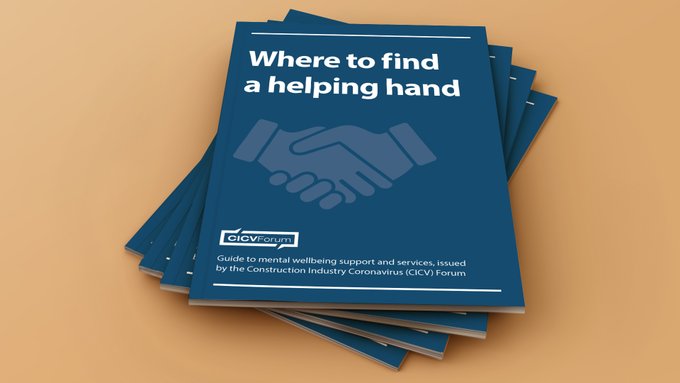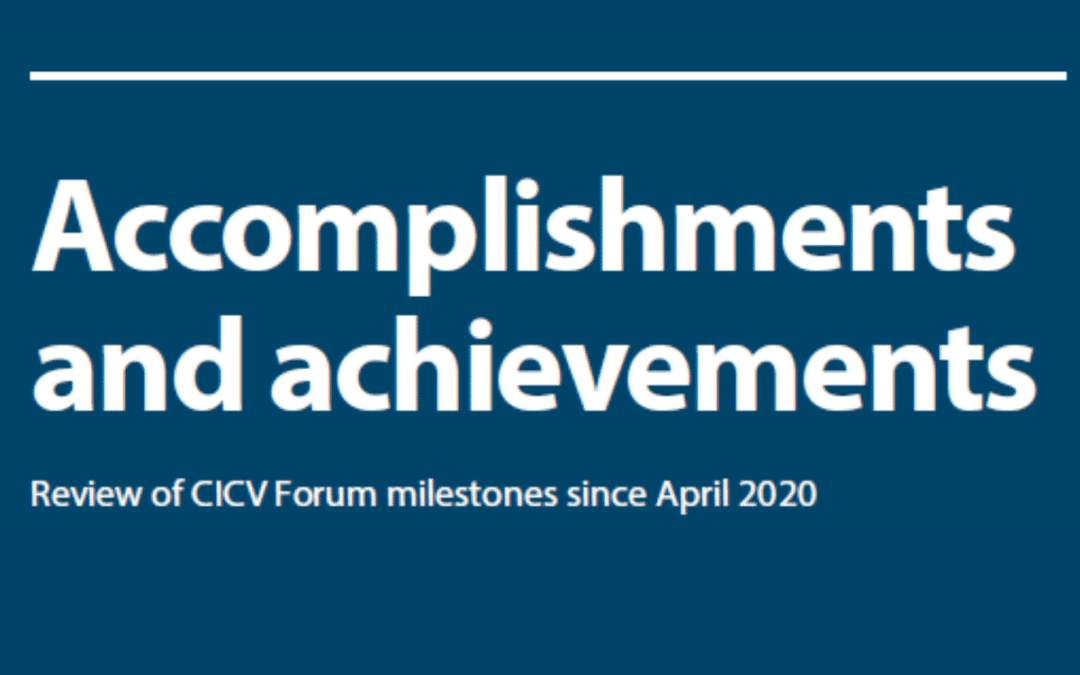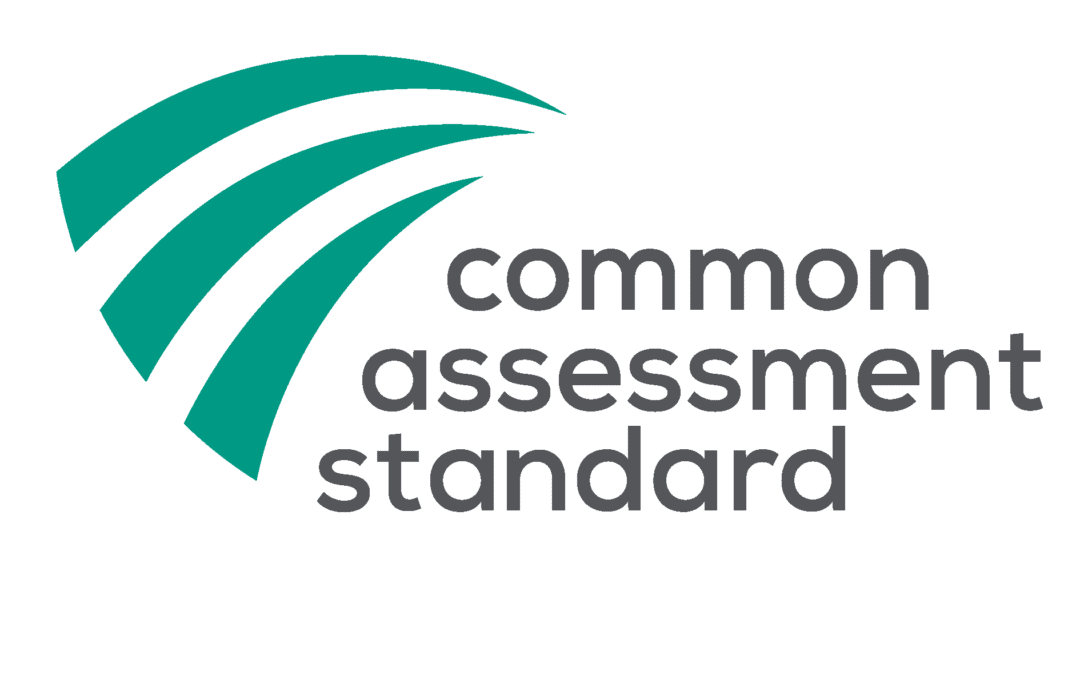
by Clair Mooney | 27 Apr, 2021 | Main News Feed, Market data
Construction activity continued throughout the first quarter of 2021, and double-digit growth is forecast this year, according to the Construction Product Association’s latest Spring Forecast published today. With the whole supply chain (architects, consultants, contractors, SMEs, manufacturers and merchants) permitted to operate during the winter lockdown restrictions, activity was not hit as hard compared to the initial lockdown in the first half of 2020 or other sectors of the economy. The CPA forecasts that it will be next year before the industry recovers the output lost in 2020 and returns to 2019 levels, however. It also highlights significant risks to the construction sector’s recovery from 2021, including supply constraints for key imported construction products and uncertainty around demand for housing new builds, and repair, maintenance and improvements works (rm&i) and commercial space.
Construction output is forecast to rise by 12.9% in 2021 and 5.2% in 2022 compared with 14.0% in 2021 and 4.9% in 2022 in the CPA’s winter main scenario. The downward revision to the growth forecast for 2021 reflects a higher base for construction output in 2020, with official data reporting a smaller fall than initially anticipated of 12.5% in 2020 compared to 2019. The UK economy faltered in 2021 Q1 due to the impacts of the third national lockdown on the services sector that accounts for 81% of UK GDP. For construction, however, activity accelerated in the first quarter of the year, although the story varies amongst its various sectors.
Infrastructure was least affected by the initial lockdown as it was considerably easier to enact site operating procedures and other safety measures on large sites. In 2021, output is set to increase by 29.3%, reaching its highest level on record. This will be driven by activity on major projects such as HS2, despite the announcement of further delays and cost overruns, as well as activity on long-term frameworks in regulated sectors such as water, roads, electricity and broadband.
Extensions to the stamp duty holiday, Help to Buy and job support schemes are expected to help sustain demand in private housing and private housing rm&i. Private housing, which was the worst-affected construction sector in the initial lockdown is expected to continue its strong recovery in 2021 with the Chancellor’s mortgage guarantee scheme likely to enable demand in the general housing market. Coupled with expectations of rising house prices during the year, starts activity is forecast to gather pace in 2022. In addition, demand for contracted-out improvements projects, outdoor and office-related space requirements at home is likely to be maintained by households with higher incomes and those that have built up savings due to a reduction in commuting and work-related expenses.
Commenting on the Spring Forecast, CPA Economics Director Noble Francis, said: “Whilst outlook is largely positive, the recovery in commercial – the third-largest construction sector – is expected to be muted given a lack of major investment in new projects, particularly in Central London. Questions remain over future demand of commercial space, particularly in offices and retail, which may be converted into residential or warehousing and logistics, if homeworking and online spending persists in the long-term.
“More notably, however, there are significant risks to the recovery in the form of supply constraints in terms of extended lead times and sharp rises in costs for vital imported products such as paints and varnishes, timber, roofing materials, copper, steel and polymers. This may hinder the ability of construction activity to increase in line with our forecast. Furthermore, concerns remain whether the high levels of demand for housing new build and rm&i can be maintained after the government stimulus and policy measures end on 30 September, particularly the furloughing and self-employment income schemes and stamp duty holiday.”

by Clair Mooney | 26 Apr, 2021 | Main News Feed
The Construction Leadership Council has supported a new tool to drive better value in the delivery of future construction projects.
Today (26 April 2021) industry gets its first look at the Value Toolkit, an initiative that has been developed by the Construction Innovation Hub to drive value-based decision-making for construction.
The toolkit is intended to support the industry to move away from cost-based approaches to assessing projects, instead targeting better social, environmental and economic outcomes for every pound spent on buildings and infrastructure.
Construction Leadership Council members have been heavily involved in the development of the toolkit which is now moving into its pilot phase with 20 organisations looking to use under test toolkit on real life projects over the next six months.
CLC co-chair Andy Mitchell said: “At its core the Construction Leadership Council looks to find ways for the industry to harness innovation, skills and technology to deliver the outcomes wanted by the public. As such, we are delighted to support the development of the Value Toolkit, which is fully aligned with our mission.
“We want to commend the team that has developed the Toolkit, and encourage colleagues from across industry to support its pilot phase, as well as its wider roll out later this year.”

by Clair Mooney | 23 Apr, 2021 | Market data
The latest weekly update from the CPA is available to members here. The updated issues are in pages 1-7 including:
- ONS UK Retail Sales (March 2021)
- GfK UK Consumer Confidence (April 2021)
- RIBA Future Trends Survey (March 2021)
- UK Construction Vacancies (March 2021)
- HMRC UK Residential Property Transactions (March 2021)
- ONS UK House Prices (February 2021)
- Barbour ABI Home Improvers Report 2021 (April 2021)
Subsequent pages have existing construction data that remain relevant.
The CPA’s latest forecasts (Spring 2021) will be published on Monday 26 April with an associated webinar that will go through key issues in the forecasts on Wednesday 28 April at 11am. CPA members can register to attend here.

by Clair Mooney | 23 Apr, 2021 | Main News Feed
This week the Prime Minister reaffirmed that data supports keeping to the easing of lockdown roadmap. He emphasised that the UK, despite vaccine roll-out success, could be hit by a third wave of Coronavirus and announced the creation of a new antiviral taskforce to focus on rapid response in vaccine development.
The Scottish First Minister confirmed the most significant stage in lockdown easing on Tuesday signalling Scotland’s move to Level 3. From Monday 26 April, Scotland will see the reopening of hospitality, gyms and non-essential shops. Non-essential work inside people’s homes will also be possible – such as painting, decorating, or repairing, and the return of those in the shielding category to the workplace. Read the timetable for easing restrictions in Scotland.
In Wales, 6 people from 6 households can meet outdoors in Wales from Saturday, and in pub beer gardens once they reopen next week. Pressure is mounting on the First Minister to bring forward reopening plans for the indoor hospitality sector into line with England and Scotland, on 17 May. Read the current rules for Wales.
In Northern Ireland from 30 April, non-essential shops, hairdressers and outdoor areas at pubs and restaurants can reopen. You can also stay overnight in self-contained accommodation but only with your household or bubble. Read the guidance on current restrictions here.
In Engalnd, more businesses and venues were able to reopen from 12 April, such as non-essential shops, outdoor areas at pubs and restaurants, hairdressers, and gyms. Read the full guidance on what you can now do.
For all COVID updates, visit the FIS COVID-19 Hub here.

by Clair Mooney | 22 Apr, 2021 | Insurance, Market data
FIS latest quarterly trends survey shows that there is cautious optimism in the sector, but recovery is patchy.
The latest data gathered as part of the wider Construction Products Association quarterly trends survey shows that Overall 50% of respondents reported increased quarterly sales in Q1 2021, however workload remains constrained, with the balance reporting workloads slipping back on a quarterly basis. The spread of the response is indicative of the patchy nature of recovery. The market is, however becoming increasingly optimistic with a balance of 63% expecting increased sales in the next quarter and 26% anticipating this will convert into actual work.
Shortage is the watchword for 2021 in the finishes and interiors sector and this has manifested in inflation through the supply chain. Over the past 12 months shortage in key materials hit the headlines (e.g. plaster and plasterboard) largely driven by COVID related production issues. In 2021 whilst issues related to gypsum products has eased, more globalised issues related to steel, screws and fixings, timber and now polymeric products such as sealants are starting to drive allocation and extended lead times. We have also seen shipping and transport costs impacted by Brexit, but this now seems to be easing. Outside of these figures the rising cost of insurance and availability of cover has been raised as a concern.
FIS CEO, Iain McIlwee stated “I think if we knew 12 months ago we would expected to have seen far worse numbers, on the whole there are a lot of positives in there. These figures are consistent with conversations we are having with members, there is work out there, but some sectors and regions are lighter than others and it is difficult to take a longer term view. I take confidence from conversations with the Bank of England this week about long term investment patterns, but I am a little wary that the delays in work and decisions will leave a bit of an air bubble in the system and that cash, material and labour shortages will make things tricky for many in balancing things over the next 12 months”.
Iain McIlwee, FIS Chief Executive

by Clair Mooney | 22 Apr, 2021 | Main News Feed
The Scottish Government has produced guidance to support businesses across Scotland to reopen safely by providing posters and digital assets that can be used to promote the latest guidance and regulations to employees and customers.
The Toolkit – Helping your business to reopen safely can be accessed here.
Businesses are encourgaed to utilise the toolkit and display them in key spaces where staff and the general public can see them. The guidance and regulations promoted in the resources are critical in our combined efforts to enable businesses to reopen safely while minimising the spread of COVID-19.
The campaign toolkit includes the following resources:
· 5 posters, covering messaging for both business staff and customers
· 4 social / digital posts
· An A5 leaflet
· A window sticker

by Clair Mooney | 22 Apr, 2021 | Labour, Skills
There have been reports of up to 60% labour not being available by some FIS members. With this in mind, FIS has two projects specifically designed to attract people into the sector. In addition, the Governments Plan for Jobs has four initiatives that rely on employers’ willingness to provide work placements and/or for T-Level students industrial placements.
Critical to the success of these two projects is the commitment from employers to give individuals a chance by offering work placements.
FIS Build Back Programme
This programme accepts individuals from a range of backgrounds including HM Forces Career Progression candidates and clients put forward by the Department for Work & Pensions (DWP). To help prepare the candidates for work, each learner receives training in drylining finxing and boarding and are supplied with personal protective equipment, a set of tools and a CSCS Provisional Card. The candidates just need an opportunity to show employers what they can do during a work placement. This may ultimately lead to a full-time work opportunity and will also add new talent to the workforce.
There are currently 43 HM Force Career Progression candidates that have received Fixer Boarder training available for work placement now. Please contact Catherine Bullough by email: catherinebullough@thefis.org for details.
FIS Kickstart Programme
This is part of the Government’s Plan for Jobs; we help employers fill their new vacancies. By working with the DWP, FIS can help to source suitable candidates for a six-month job placement within the business. Once successful candidates are placed with the company, the employer is entitled to claim a support grant of £1500 plus the national minimum wage salary payments based on 25 hours per week.
For more details on these projects and to register your interest in offering work placements please contact Catherine Bullough, Skills and Training Coordinator on 07900 083325 or email catherinebullough@thefis.org

by Clair Mooney | 21 Apr, 2021 | Main News Feed
Residents across England will be better protected as the government takes the next step to ensure materials used to build the nation’s homes are safe and tested properly.
Housing Secretary Robert Jenrick has today (20 April 2021) appointed two experts to lead an independent review of the system for testing construction products. Former government adviser and construction expert Paul Morrell OBE will be the chair of the independent panel, along with legal expert Anneliese Day QC.
The review, announced earlier this year, will examine how to strengthen the current system for testing construction products to provide confidence that these materials are safe and perform as marketed.
The review forms part of the government’s ongoing programme of work to reform and strengthen building safety regulation and comes after testimony to the Grenfell Tower Inquiry exposed evidence of testing irregularities and potential gaming of the system by some manufacturers.
Housing Secretary Rt Hon Robert Jenrick MP said:
The Grenfell Tower Inquiry has heard deeply concerning suggestions that some construction product manufacturers may have gamed the system for testing these materials and compromised the safety of residents.
We are taking these allegations very seriously and will await the Inquiry’s final recommendations – but it is clear that action is needed now to ensure products used on buildings always meet the highest safety standards.
I am pleased to appoint Paul Morrell OBE and Anneliese Day QC to lead this independent review of the system for testing construction products that will build on the significant progress we have already made to make buildings safer.
The panel will engage with a wide range of stakeholders to seek their views on how the system of safety testing of construction products could be improved and will report later this year with recommendations.
The government has already announced that a new National Regulator for Construction Products will be established within the Office of Product Safety and Standards and be given powers to remove any product from the market that presents a significant safety risk; and prosecute and fine any company that breaks the rules.
These measures form part of the government’s wider, ambitious reform of the sector, which includes the draft Building Safety Bill, that will bring the biggest improvements to building safety standards in 40 years and strengthen the regulation of construction products.

by Clair Mooney | 21 Apr, 2021 | Main News Feed, Transformation
The role of the Industry Safety Steering Group (ISSG) is to report on the progress of the construction industry in delivering culture change to support greater building safety; and to challenge and hold industry to account on behalf of the Secretary of State for the Ministry of Housing, Communities and Local Government.
Andy Mitchell (Co-Chair of the CLC), Graham Watts and Peter Caplehorn (Co-chairs of the CLC Building Safety workstream) attended an ISSG meeting in late 2020 to report on progress of developing the CLC Building Safety workstream. Following on from this meeting, correspondence has been exchanged between Dame Judith Hackitt and Andy Mitchell.
The letters can be read here: ISSG to CLC – December 2020, CLC to ISSG – April 2021

by Clair Mooney | 20 Apr, 2021 | Skills
The apprenticeship service is hosting a series of support webinars, the next one is taking place on Wednesday 28 April between 12pm to 1pm.
Since 1 April 2021, all new apprenticeships are managed and funded using the apprenticeship service. All employers hiring apprentices need to have an apprenticeship service account. This webinar is aimed at employers, to enhance your understanding of the apprenticeship service and its features. The webinar will include information on:
- what the apprenticeship service is and how to use it
- updates on recent and new developments in the apprenticeship service
- how to set permissions in your apprenticeship service account
Attendees will have the opportunity to take part in a live question and answer session. The webinar will be recorded and made available afterwards via the Education and Skills Funding Agency National Apprenticeship Service webinar portal and YouTube channel. To register please go to Apprenticeship Service | GoToStage.com

by Clair Mooney | 20 Apr, 2021 | Main News Feed
Information has been added to guidance with information about when to use an ‘XI’ prefix in UK VAT numbers in the ‘paying VAT’ section. For more information, visit https://www.gov.uk/guidance/trading-and-moving-goods-in-and-out-of-northern-ireland

by Clair Mooney | 20 Apr, 2021 | Main News Feed
Apply for a grant to help small and medium-sized businesses new to importing or exporting.
You can now apply for the SME Brexit Support Fund. Smaller businesses can get up to £2,000 to pay for practical support, including training or professional advice to adjust to new customs, rules of origin and VAT rules when trading with the EU.
You can apply and find more information on eligibility here.

by Clair Mooney | 19 Apr, 2021 | Main News Feed
As part of #StressAwarenessMonth the CICV Forum has produced a guide to mental wellbeing, with a comprehensive overview of leading charities and support networks and advice on where to find essential services. #COVID19 #InThisTogether
A copy of the guide, Where to find a helping hand, can be downloaded at https://t.co/JkakMFBe9c https://t.co/NWA8Mp7dqN

by Clair Mooney | 19 Apr, 2021 | Market data
The recovery in construction product manufacturing continued in the first quarter of 2021, according to the Construction Product Association’s (CPA) State of Trade Survey.
So far, the pick-up in construction activity has been led by private housing, infrastructure and the repair and maintenance sectors. Nevertheless, a constrained global supply of raw materials and components, as well as the associated increases in prices, is weighing on the outlook for the year ahead.
FIS members can access the full report here.

by Clair Mooney | 8 Apr, 2021 | Main News Feed
After marking the anniversary of its first-ever meeting, key members of Construction Industry Coronavirus (CICV) Forum have revealed their personal highlights of working together for the ever-expanding collective.
The unique collaboration of trade associations, professional bodies, companies and individuals has helped guide the industry and public through a year of massive upheaval with a wealth of information and unrivalled teamwork.
And as the Forum celebrated the anniversary of its first meeting on 5 April 2020 by releasing an updated round-up of its accomplishments over the last 12 months, many members said their most fervent wish is for this spirit of togetherness to continue.
Alan Wilson, CICV Forum Chair and Managing Director of electrical trade association SELECT, said: “When the idea of the Forum was first mooted, I don’t think that anyone could have imagined the way in which the concepts of collaboration, cooperation and commitment would be so quickly translated into action.
“The many distinct strands of the sector have come together as never before with one common goal – ensuring that not only do we survive this dreadful pandemic, but that we come out of it stronger and more positive than before. For me, that has been the undoubted highlight.”
Gordon Nelson, Scotland Director of the Federation of Master Builders, echoed the sentiment, saying: “It was quite remarkable how, once the Forum was established, people were queuing up to come aboard, wanting to help and contribute their skills and expertise. It really did show that we are #InThisTogether.
“The highlight for me is that organisations are still eager to join and sit alongside other senior representatives who operate the length and breadth of Scotland’s built environment supply chain.”
For other members of the Forum, highlights covered a wide range of areas from the past 12 months, including the influence the group has achieved, the quality of the information that’s been shared and the accessibility of the guidance and advice offered.
John McKinney, Scotland Manager of the NFRC, said: “For me, what was so pleasing was how quickly it became clear that the Forum was speaking for the entire sector, and with that weight of influence behind it, was soon viewed as a valuable and influential voice for the industry.
“I have been heartened to see how rapidly we gained a place at the top decision-making tables and could speak authoritatively, listen constructively and act decisively with the Scottish Government, local government and other major bodies about the most pressing matters as the pandemic progressed.”
Rebecca Crosland, Head of Health & Safety at the Building and Engineering Services Association (BESA), said: “My highlight has been seeing how, at a time of uncertainty and confusion, the expertise of Forum members has helped create a strong pipeline of relevant, practical and easy-to-understand information.
“Over the course of the year, we have regularly produced guidance documents with a wealth of health and safety advice to keep workers, clients and the public safe, and will continue to provide updated guidance as we progress down the route map to recovery.”
Iain McIlwee, Chief Executive of the Finishes and Interiors Sector, echoed her sentiments, saying: “I was delighted to see the quick realisation that any information had to be disseminated in a simple, easily digestible form which would resonate throughout the hugely disparate elements of the sector.
“The resulting high points have been many, but I’ve really enjoyed the animations on domestic working, returning to work safely, physical distancing and face coverings that, like much of the guidance, has been adopted across Scotland and beyond.”
For other members of the Forum, the highlights have included its free webinars, the important papers produced, the unanimity in seeking the common good and the considered and thoughtful visions for the future.
Len Bunton, construction consultant and co-Chair of the Forum’s Pipeline and Commercial Sub-Group, saluted the wide range of open-source online sessions hosted by the Forum. He said: “My personal highlight has been the wealth of free essential commercial advice that’s been delivered, including vital information on payments and contracts.
“The Forum’s list of webinars illustrates how these talks, all presented by renowned industry experts, offered clear and relevant guidance to today’s construction professionals.”
Fiona Hodgson, Chief Executive of the Scottish and Northern Ireland Plumbing Employers’ Federation (SNIPEF), said: “In the past, construction has been seen as competitive and confrontational, so it was enormously encouraging to see how people pooled resources to produce a range of expert analysis and advice on helping the sector.
“This unique collaboration has not only given the industry an authoritative common voice, it has also resulted in a wide range of papers that have been shared with powers-that-be to inform and enlighten them about the true state of the sector and the futures towards which it is striving. For me, that is a significant highlight of a truly eventful year.”
Vaughan Hart, Managing Director of the Scottish Building Federation, and co-chair of the Forum’s Skills and Workforce sub-group, said: “Perhaps it has taken an emergency of almost inconceivable proportions to pull the industry together, but whatever the reason, the result has been nothing short of excellent and is undoubtedly a high point for me.
“I am hearted to see that, for the first time, this is the sector speaking with one voice, for the greater good not only of its component parts, but for the future health of the sector as a whole and for the future benefit of the country and the wider economy.”
Grahame Barn, Chief Executive of CECA Scotland, agreed with his compatriot, adding: “A year ago, the construction industry in Scotland suffered a convulsion which, in the days before COVID-19 would have been unimaginable.
“My highlight has been the willingness of so many people to offer practical and constructive ways to keep alive a vitally important sector that is a major economic multiplier, employs 175,000 people and contributes £21.5 billion to GDP.”
The final word went to Hew Edgar, Associate Director of Policy at the Chartered Institute of Building (CIOB), who said: “As a direct result of our communications and interactions with the industry, the highlight for me has been our collective vision for the future.
“After the initial Blueprint for our Industry, I was proud to be involved in the creation of the recent CICV Forum Manifesto, which highlights the issues that an incoming government in Scotland needs to address after the Holyrood elections next month (May).
“It has been a productive, useful and surprising year, but the industry can be assured that the Forum will continue to outline practical measures we can all take to build a better future.”
Made up of more than 70 trade associations, professional services bodies and companies, the CICV Forum was formed in March 2020 and held its first meeting on 5 April. Since then, it has maintained a steady supply of information and practical advice to the sector as well as carrying out surveys, hosting webinars and holding regular discussions with the Scottish Government.

by Clair Mooney | 6 Apr, 2021 | Skills
An estimated 11 million adults now have the opportunity to gain a new qualification for free, designed to help them to gain in-demand skills and secure great jobs.
Free courses for jobs as part of the Lifetime Skills Guarantee’s
As part of the Lifetime Skills Guarantee adults in England who are 24 and over and do not yet have A levels or equivalent can now take their first full level 3 qualification for free, building on the offer already available to 19 23 year olds. There are almost 400 qualifications available and all courses have been identified to help ensure good job prospects, focussing on areas where employers need skills and leading to job opportunities that can help adul ts earn a good wage.
Take advantage of the offer and help your staff upskill at gov.uk/free courses for jobs
The roll out marks a major milestone in the delivery of the landmark Lifetime Skills Guarantee – announced by the Prime Minister in September 2020. The Guarantee aims to transform the skills system so everyone, no matter where they live or their background, can gain the skills they need to progress in work at any stage of their lives. It will also ensure employers have access to the skilled workforce they need, and more people are trained for the skills gaps that exist now, and in the future.
Prime Minister Boris Johnson said: “As we cautiously lift lockdown restrictions, the government’s focus is on recovering from the pandemic and building back better.
“The Lifetime Skills Guarantee is fundamental to that – with free courses giving adults the expertise they need to find new, better jobs.
“My message is clear. At every stage of your life, we will help you get the skills you need to train, retrain, and get into jobs you want and our economy needs.”
As well as the free courses, as part of the Lifetime Skills Guarantee, thousands of adults have taken advantage of new Skills Bootcamps which offer free, flexible courses lasting up to 16 weeks covering areas including construction, digital and technical.
Skills Bootcamps – which are currently running in six areas of the country – provide a chance to learn specific skills and offer a fast-track to an interview with a local employer at the end. Skills Bootcamps will be expanded across the country later this year.
The government’s Skills for Jobs White Paper, published in January, enshrines the Lifetime Skills Guarantee – setting out landmark reforms that will realigning the post-16 education system around the needs of employers, so that people are trained for the skills gaps that exist now, and in the future, in sectors the economy needs, including construction, digital, clean energy and manufacturing.
The White Paper forms a key part of the government’s Plan for Jobs which is protecting, supporting and creating jobs across the country and will help everyone to benefit from the opportunities available to them.

by Clair Mooney | 31 Mar, 2021 | Insurance, Market data
Significant cost increases and the introduction of new restrictions on professional indemnity (PI) insurance are preventing companies taking on projects and could delay essential work on building safety. These were the findings of a pan-industry survey of over 1,000 firms carried out by the Construction Leadership Council and published today.
The results pointed to widespread incidence of companies having to change the type of work they do because of restrictions on cover, with a quarter losing jobs because of tough conditions and limitations being placed on them by insurance firms. Even though two thirds of respondents said that less than 5% of what they do is high rise residential, almost one in three were unable to buy the cover they wanted or needed.
The survey was carried out from mid-February to mid-March and received 1,066 responses from a mixture of consultants, contractors and specialists. They also ranged in size with half of the respondents from companies with turnover below £2 million and 10% over £50 million.
The results* revealed that:
• Over 60% of total survey respondents have some form of restriction on cover relating to cladding or fire safety
• One in three of total survey respondents have a total exclusion in place for cladding claims
• One in five of respondents have a total exclusion in place for fire claims
• Over a quarter of total survey respondents have lost jobs as a result of inadequate PI insurance
• One in three respondents couldn’t do remedial work if they wanted to
• Almost a quarter of total survey respondents have changed the nature of their work due to inadequate PI insurance.
• Majority of respondents buy £10m or less cover with very few buying over £20m
• Almost half of respondents had been declined insurance by three insurers or more
• Two thirds of respondents are carrying a claim excess imposed upon them by their insurers
• Premiums have increased nearly 4-fold at the last renewal, having doubled the year before; the average rate is 4% of turnover but one in five who gave figures are paying more than 5% of their turnover for their PI insurance
This issue has been building for a while now and is starting to loom as our next crisis. The fact that 44% of businesses across the sector have been refused cover is telling and whilst 29% claim not to have been able to get the cover they need, the concern from conversations we have and analysis of cover is that I doubt many have cover they would consider ideal. Premiums continue to escalate and policies are contracting, everybody is paying for cover, but it isn’t aligned and there seems to have been little engagement from the insurance sector to address specific concerns rather than generic perceptions. Insurance is a financial service, but it needs to be engrained in the industry itself, it isn’t a just service, it is part of the infrastructure of the sector – we need to take a much closer look, as a supply chain. We need to consider carefully the role of options like integrated project insurance and wrapping insurance round the entire supply chain, ensuring insurance isn’t just another contract that seeks to write out risk, but is a core part of how we responsibly manage this. We welcome this work from the CLC – FIS is exploring a number of options for our sector, building on our Product Process People framework and, if any companies or individuals are interested in getting involved in our focus group, let me know.
FIS CEO Iain McIlwee
The survey results are available here
*For consistency all results are given as percentages of total respondents (1066), but some questions were answered by fewer respondents.

by Clair Mooney | 31 Mar, 2021 | Main News Feed
From 6 April, companies with 10 or more employees who cannot work from home will be able to order home test kits for their employees where it is not possible to set up a testing site in the workplace.
The deadline to register for workplace testing has been extended until Monday 12 April 2021. Build UK has produced a useful guide summarising the process.
Access all the latest Covid-19 updates in our Covid Hub.

by Clair Mooney | 30 Mar, 2021 | Main News Feed
Major contractors now adopting the Common Assessment Standard
Build UK has announced that the new industry-wide pre-qualification (PQ) system is now fully up and running, simplifying a complex system for the benefit of everyone in the construction sector. The rollout of the Common Assessment Standard will significantly reduce the duplication of time, effort and resources that are costing the sector up to £1 billion a year.
Major contractors and clients – including Balfour Beatty, Costain, HS2, Mace, Multiplex and Skanska – have all adopted the Common Assessment Standard meaning that members of their supply chains will need to obtain just one certification to tender for work with them. This follows the recent implementation of a new data sharing solution, which enables contractors and clients to obtain key PQ data from any one of three Recognised Assessment Bodies: Achilles, CHAS or Constructionline.
The Common Assessment Standard is an industry-agreed question set with two levels of certification – desktop and site-based – and companies can apply to any Recognised Assessment Body to get the appropriate level dependent upon their trade, size and requirements of their clients.
Created by Build UK with the support of CECA, the Common Assessment Standard is endorsed by the Construction Leadership Council (CLC), which is actively seeking its adoption throughout Government construction procurement, including the Construction Playbook.
Jo Fautley, Deputy Chief Executive of Build UK, said: “We’re delighted that the new system is now fully up and running and already being used by major contractors and clients. It’s been a collaborative effort, involving companies across the whole sector, and the new system is a huge step towards more efficient working, which is more important than ever in the current challenging economic climate.”
Neil Mant, Chair of the Interim Cross Industry Body, which has overseen the development of the new system, said: “The new PQ system is a huge step forward for construction. With a single Common Assessment Standard and data sharing now in place, we have not only eliminated a huge amount of costly duplication of effort but also raised the bar in assessing the competence of the supply chain. Supply chain companies will need certification from only one of the three Recognised Assessment Bodies, and contractors can continue to deal with the body they have an existing relationship with.”
Andy Mitchell, Chair of the CLC, said: “The CLC is delighted to endorse the Common Assessment Standard which is set to transform the construction PQ process. It is a real and practical way of reducing bureaucracy and improving quality in the industry and it comes at just the right time. Companies will be able to demonstrate that they meet an agreed industry standard, and clients and contractors will be able to rely on the certification. The CLC will be encouraging the adoption of the Common Assessment Standard throughout public and private sector procurement.”

by Clair Mooney | 26 Mar, 2021 | Membership, Technical
To help specifiers understand the performance of wall mounted acoustic absorbers, FIS has published a new technical note, Specifying Acoustic Absorbers where they will be installed against a wall.
The sound quality of a room often doesn’t need a specialist to tell you that something is wrong. Whether it is an office, café or community space, it can sound like being in an unfurnished room and as people arrive it can become louder and louder for occupants. It is an issue that can be addressed by reducing reverberation caused by hard surfaces through the installation of acoustic absorbers on the walls.
The new guidance will help specifiers understand the acoustic and fire performance of wall mounted acoustic absorbers, acoustics and room acoustics, reverberation and absorption, conformity marking and importantly, their installation.
Iain McIlwee, Chief Executive of the FIS said: “The new technical note is aimed at anyone wanting to address noisy spaces by installing acoustic absorbers on the walls to reduce reverberation.”
This brief guidance provides information on how products are tested, what the results mean, what fire performance needs to be considered and what to look for in terms of how they should be installled so that they perform correctly.
“The positioning and installation of the absorbers can all have a big impact on the effect the absorbers will have, so it is important for specifiers to have all the informationduring the crucial specification stage ,” added Iain McIlwee.
The technical note is available to download at https://www.thefis.org/knowledge-hub/technical/fis-technical-notes-industry-alerts/




















